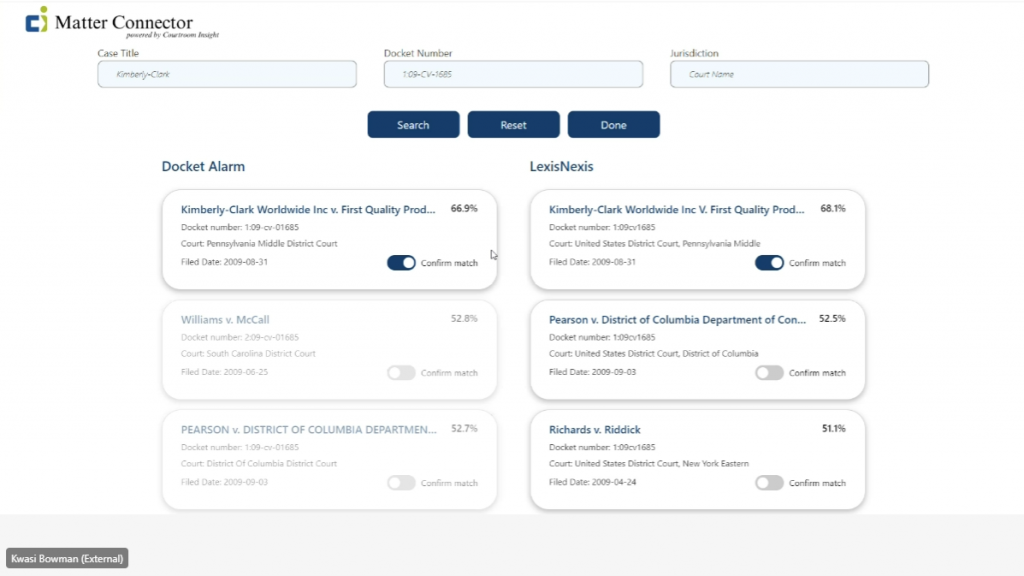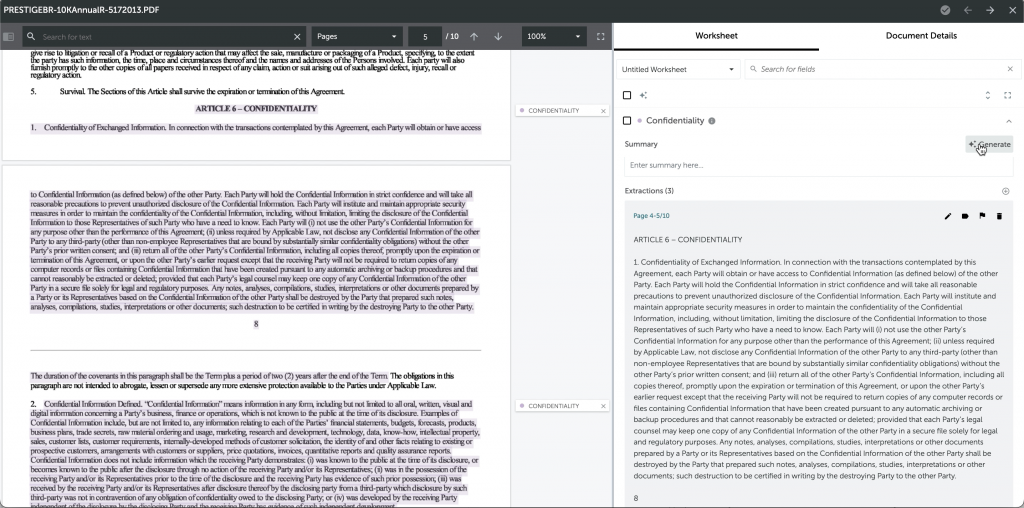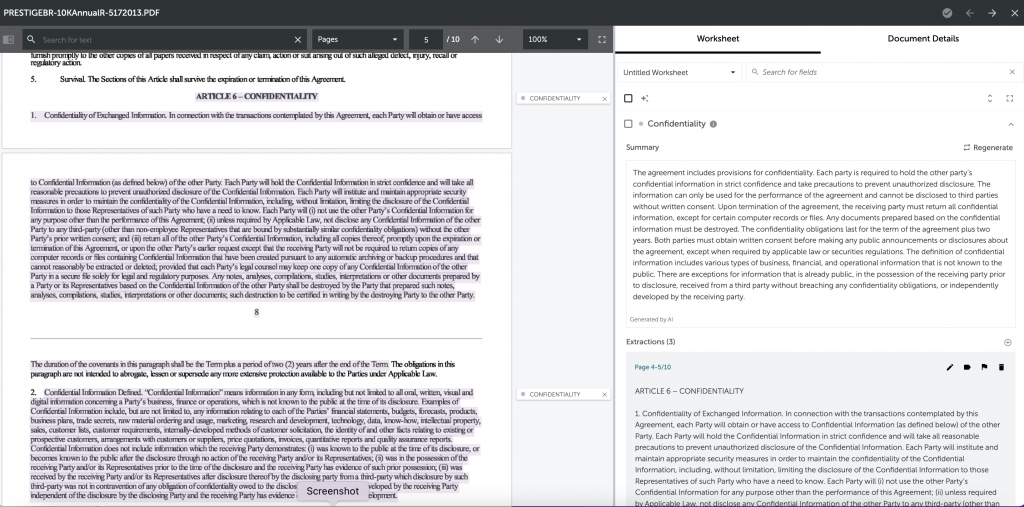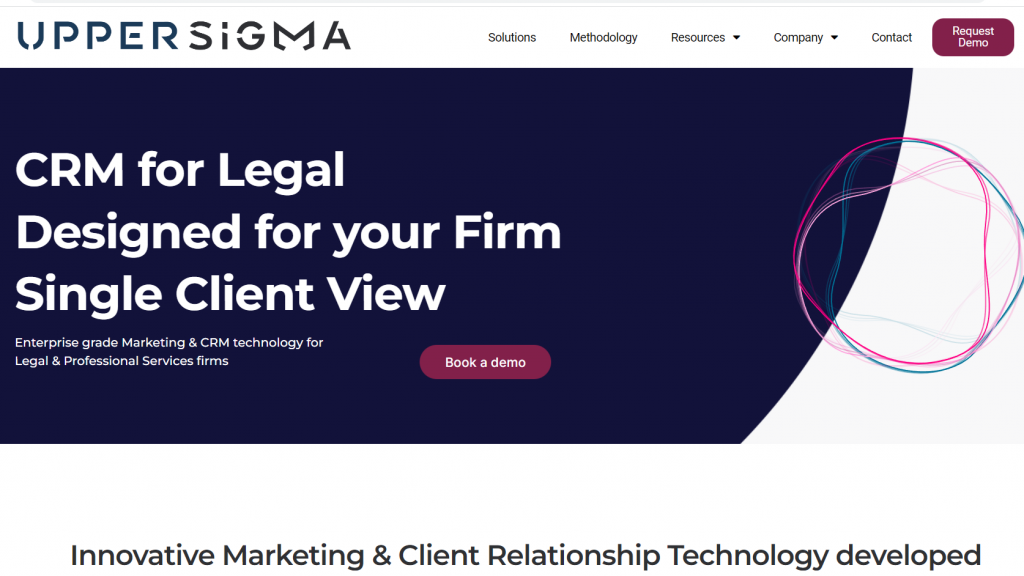
Two legal companies that are leaders in document and contracts technology, Zuva and Litera, revealed today that they have developed a multi-level document classification taxonomy for use by legal professionals and companies, and that they have contributed the taxonomy to the SALI Alliance, a group working to standardize legal data, to make it available on an open-source basis.
In addition, the document classifier they developed, which includes 225 document classifications, is available immediately through Zuva’s API offering.
Zuva is the company that was spun out from the pioneering AI contract analysis company Kira when Litera, a global legal technology company, acquired Kira in 2021. It offers contract analysis AI through an embeddable API, enabling law firms, corporations and others to implement contracts AI within their own applications.
Noah Waisberg, CEO of Zuva and the original cofounder and CEO of Kira, told me that the development of this classification is the culmination of an effort that began at Kira in 2014. When Litera acquired Kira, Litera and Zuva agreed to continue developing the classification jointly.
The decision to open source the taxonomy, he said, was driven by the fact that law firms and corporations today are often using multiple systems for contract analysis and document management, but with divergent taxonomies, resulting in systems that have no standardization or interoperability.
Related: LawNext Podcast: Damien Riehl on the SALI Alliance and Setting Data Standards for the Legal Industry.
For that reason, they wanted to make their taxonomy available for anyone to use by contributing it to SALI. In a statement, the companies explained:
“In the new era of AI-driven legal technology, document classification and data standardization are more crucial than ever. Document management systems at law firms and corporations can contain millions of documents. This is where automatic classification comes in. By correctly and granularly identifying document type, users can more easily find documents they need. Not only that, but documents can be automatically routed to the right place for further review.”
Available Today within Zuva
Waisberg said Zuva is offering the classifier to its customers effective today. He said that Litera will add it to Kira at a later time.
“Our document type taxonomy is likely to be more comprehensive than that of many other vendors, and while keeping it to ourselves could create a competitive advantage for Zuva, we think our customers are a lot better off if others use our taxonomy too, or if competitor systems’ taxonomies can be translated to ours,” Waisberg said.
Waisberg said the classifications could be particularly useful to law firms and corporations in helping them bring order to their document management systems.
“If you’re a firm, especially a larger firm, and you’re trying to bring some order to your documents, or you’re a company, and you’re trying to bring a level of order to your document management system, understanding the document type is a useful thing that can make your search richer,” Waisberg said.
But even with a classification system, getting the documents classified can be a challenge. Some firms try to do it manually at the document-creation level, but find it difficult to get lawyers and others to do the tagging. Another option is to have review teams do the tagging, but that can be expensive for a large volume of documents.
The better option is to use technology to automate the tagging, he said. However, until now, few systems were able to classify documents beyond 25 or so document types. His former company, Kira, was able to identify 25 types out of the box.
Now, by using Zuva’s API and this new classification taxonomy, the classification can be done automatically within a DMS or other system, and at a more granular level than was previously possible.
Making It Open Source
Because the taxonomy took years of effort to build and refine, Waisberg said, he wanted to contribute it to SALI so that it would be available to the public.
“It took us a lot of work to do it, and we think it’s a very good taxonomy. But if we give it to SALI, then — even though that sort of advantages competitors who might also feel like building a document classification taxonomy — it also means that everybody’s using the same thing as ours, so ours is interoperable with other systems.”
Waisberg said he likes to think of the classifications as a cake recipe and his product, Zuva, as the cake. “If you want the recipe, we’re making it freely available. Then, if you’d like to buy the cake, we also sell the cake,” with the cake being the document classifications working within Zuva.
Another advantage of making the classification open source is that it gives customers choice, Waisberg said. If a customer decided to switch off Zuva and go to a competing product that also uses the taxonomy, then it would be easy to switch.
Toby Brown, president of the board of The SALI Alliance, said in a statement that legal data standards are critical for optimizing efficiency and nurturing global collaborations. “Zuva and Litera’s contribution is an exciting addition to the standards we’ve established, further paving the way for vast opportunities across the legal spectrum.”
Damien Riehl, a key member of the SALI leadership team, said that SALI’s classification scheme is particularly important in helping legal professionals safely use generative AI in legal contexts.
“For large language models (LLMs), an important method of increasing accuracy and reducing hallucinations is retrieval augmented generation (RAG), and SALI’s 13,000-plus tags can helpfully curate that document subset — for LLMs to summarize, analyze, and synthesize.”
 Courtroom Insight today launched Matter Connector, a product that delivers normalized docket data from multiple sources to the knowledge management platform Litera Foundation and to other law firm systems. Matter Connector enables law firms to centralize docket data from major providers, such as LexisNexis, Lex Machina and vLex Docket Alarm, through one unified connector. Using […]
Courtroom Insight today launched Matter Connector, a product that delivers normalized docket data from multiple sources to the knowledge management platform Litera Foundation and to other law firm systems. Matter Connector enables law firms to centralize docket data from major providers, such as LexisNexis, Lex Machina and vLex Docket Alarm, through one unified connector. Using […]
 Litera today released a new product that uses generative artificial intelligence to create a database of corporate deal terms from a law firm’s own documents, in order to give legal teams easy access to al relevant data points from prior transactions, whether for negotiating a deal or pitching a potential client. The product, Foundation Dragon, […]
Litera today released a new product that uses generative artificial intelligence to create a database of corporate deal terms from a law firm’s own documents, in order to give legal teams easy access to al relevant data points from prior transactions, whether for negotiating a deal or pitching a potential client. The product, Foundation Dragon, […]




